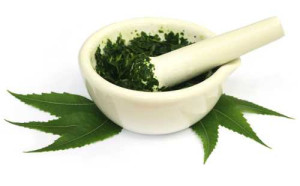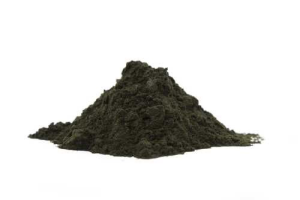Neem Leaf
Table of Contents
NEWS: This superfood is now available in the SANEStore as a convenient whole-food powder so you can more easily enjoy it in smoothies and recipes.

Used for over 5000 years, neem leaves are one of the most common elements used in traditional Ayurvedic remedies. Neem leaf and its constituents have been demonstrated to exhibit immunomodulatory, antihyperglycaemic, antiulcer, antimalarial, antifungal, antibacterial, antiviral, antioxidant, antimutagenic and anticarcinogenic properties properties making it beneficial in addressing a wide array of health concerns.
Why Try Neem Leaf Superfood?
- Stimulating the immune system
- Improving liver function
- Promoting a healthy circulatory, respiratory & digestive system
- Anti-bacterial, Anti-viral, & Anti-fungal properties
- Supports healthy blood sugar levels
- Blood purifying & detoxification
What are the health benefits and uses of Neem Leaf?
Neem has been studied scientifically to a modest degree, but it appears to have potential for several areas of health, including blood sugar management and benefits for your hair, skin, teeth, liver, and kidneys.
Neem leaf and blood sugar management:
Neem’s potential for management of blood sugar is most promising and best studied in animals and test tubes.
In one study, lab researchers found that neem leaf extract improved insulin sensitivity in mice without any side effects.
In another animal-based experiment, neem’s hypoglycemic or blood sugar–lowering effects were compared with glibenclamide (a medication used to lower blood sugar) and placebo. The results showed that it worked about as well as the drug on normal healthy rats.
In a 2015 study on obese diabetic mice, Neem leaf extract significantly reduced hemoglobin A1c levels, a marker for long-term glucose control.
However, there are currently no human studies confirming these effects.
Neem and skin:
There is some evidence that neem may be beneficial as a topical treatment for acne, psoriasis, and other skin conditions upon further study.
In one lab-based experiment on human skin cells, researchers found that an extract of neem leaves was effective at killing the bacterium Propionibacterium acnes – a common culprit in causes of acne.
Another lab study evaluated various plant extracts for their effects on a strain of P. acnes found to be resistant to antibiotics. While many plants had no effect against antibiotic-resistant strains of P. acnes, fresh neem leaf paste completely eliminated them after 24 hours. In animal-based experiment, mice treated with neem kernel extract experienced a reduction in skin inflammation.
Neem and hair:
Research has shown that Neem oil may strengthen hair, reduce hair loss, increase hair growth, prevent dandruff, slow down the graying of hair, and improve scalp health. One study found that massaging 1% neem oil into the scalp nightly reduced levels of Malassezia yeast species – a fungus associated with dandruff.
Another early lab-based experiment on human cell cultures found that applying an extract of neem leaves for two months increased production of insulin-like growth factor which stimulates cells to produce new proteins, promoting healthier hair growth [7]. The investigators commented that “the data suggested protective effect of neem extract on hair loss.”
Neem and teeth:
There is very little research on the effects of neem for dental health. One clinical trial did find, however, that mouthwash containing neem leaf extract was well tolerated in humans.
Neem and liver / kidneys:
Animal-based lab experiments indicate that extracts of Neem bark may have protective effects for your liver and kidneys when exposed to chemical stress. One study found that when rats were exposed to high doses of acetaminophen (a medication used to treat fever and pain), their livers showed signs of toxicity. The researchers noted that treatment with an extract of neem bark helped reduce levels of certain enzymes in the blood indicative of liver injury.
In another experiment, crude extracts of neem seed oil were found to protect rat liver cells from toxicity.
Neem and UVB Radiation:
One lab-based study investigated the effect of a Neem leaf extract on acute UVA-induced damage in mice. The results concluded that “results indicate that this plant extract has photoprotective activity against UVA induced oxidative stress.”
While no human studies have been conducted yet, this research is promising for the future use of neem as a natural sunscreen.
Neem Oil:
Traditionally used topically for thousands of years, neem oil is very effective at repelling bugs such as mosquitos and ticks due to its strong odor. In a 2014 study, researchers tested neem oil’s effectiveness against mosquitos and found that it was able to repel them quite effectively.
Neem oil is also known for its ability to kill head lice. In one clinical trial, researchers treated children with head lice using neem oil shampoo. The results showed that they experienced a significantly shorter duration of infestation compared with another group who used a regular anti-lice shampoo
In another study on mice, they were given a solution containing neem seed oil twice a day for 7 days and then exposed to the fungal pathogen Candida albicans – an infection associated with nail fungus.









